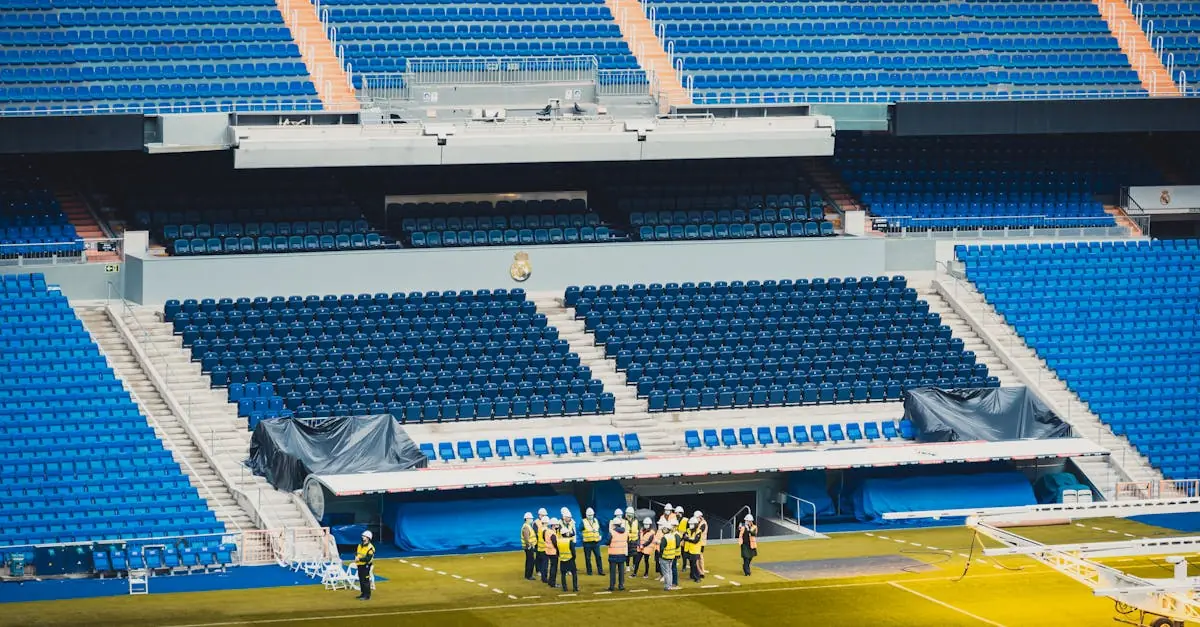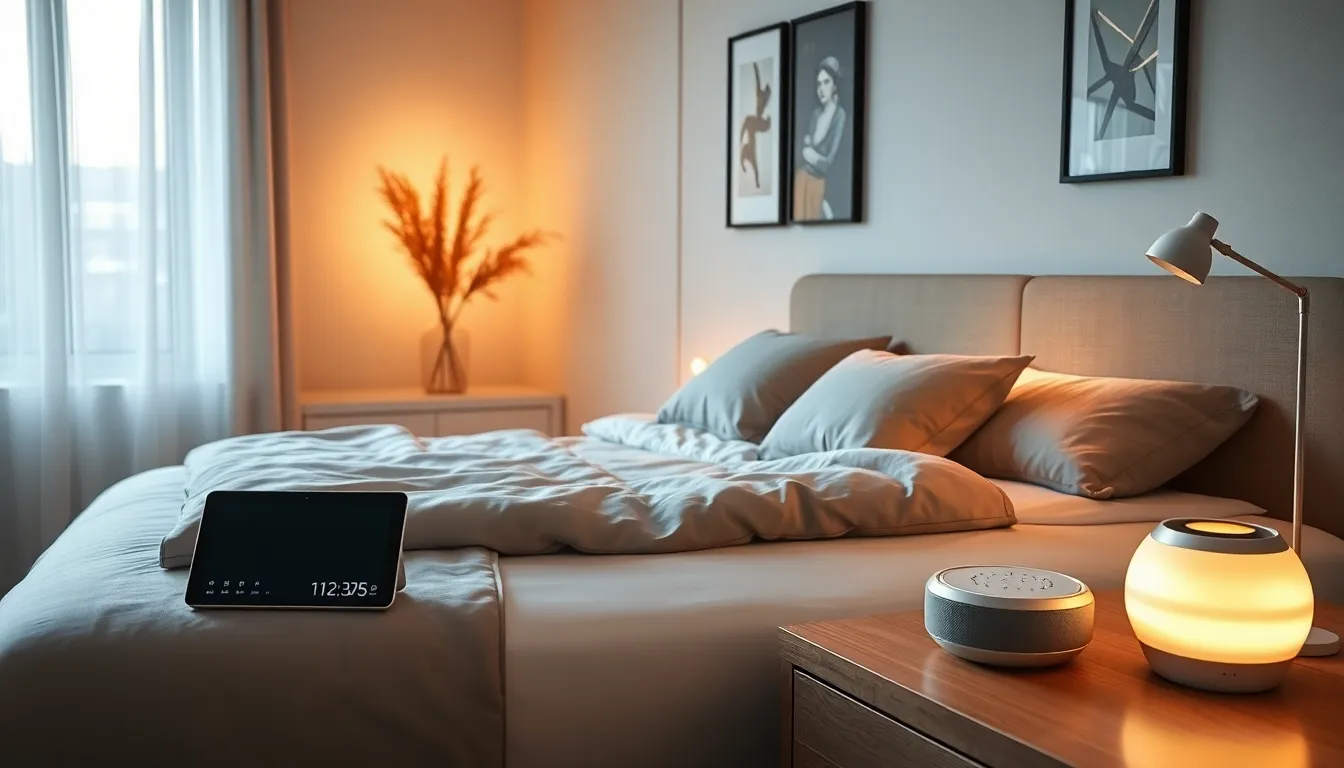Every successful event starts with a flawless venue, but let’s face it—keeping that space in tip-top shape can feel like herding cats. From ensuring the lights shine brighter than a Hollywood premiere to checking that the restrooms are cleaner than a surgeon’s hands, a comprehensive maintenance checklist is a lifesaver.
Table of Contents
ToggleImportance Of An Event Venue Maintenance Checklist
A maintenance checklist ensures venues meet high standards for cleanliness and functionality. It identifies essential tasks, such as inspecting lighting, sound systems, and plumbing. Regular evaluations maintain safety and enhance the visitor experience.
Using a checklist prevents oversight of critical maintenance tasks. Organizing tasks into categories helps prioritize work, ensuring that essential items receive attention first. For example, recognizing that clean facilities influence attendee satisfaction is crucial.
Incorporating scheduled maintenance provides assurance that all aspects of the venue are routinely examined. This proactive approach reduces the likelihood of last-minute repairs, minimizing disruptions during events. Ensuring that all equipment operates properly creates a seamless experience for organizers and guests alike.
A checklist promotes accountability among staff members. Assigning specific responsibilities ensures that everyone understands their role in maintaining the venue. By fostering teamwork, the overall upkeep improves, contributing to the longevity of the space.
Collecting feedback from event patrons further enhances maintenance practices. Understanding their concerns helps identify areas for improvement. Addressing these concerns not only satisfies attendees but also builds a reputable image for the venue.
Finally, a well-maintained venue attracts more bookings and high-profile events. As potential clients assess the venue, clear evidence of maintenance practices positively influences their decision-making. A solid reputation leads to increased business opportunities and long-term success for the venue.
Key Components Of An Event Venue Maintenance Checklist
A comprehensive event venue maintenance checklist includes several critical elements to ensure a space operates smoothly and safely. The checklist should include regular assessments of various aspects of the venue, focusing on inspections and equipment functionality.
Facility Inspection
Facility inspections involve evaluating all areas of the venue for cleanliness, functionality, and safety. Floors and surfaces need thorough cleaning to create a welcoming atmosphere. Checking restrooms ensures they remain in top condition throughout events. Accessibility features, including ramps and signage, must meet current regulations. Inspecting HVAC systems promotes comfort, while assessing emergency exits ensures safety during any situation. Regular inspections establish a consistent standard of quality, allowing for quick identification and resolution of issues.
Equipment Checks
Equipment checks focus on assessing functionality and readiness for events. Sound systems require testing for clarity, ensuring audio-visual needs are met. Lighting systems must function correctly; all bulbs should be replaced as necessary for optimal brightness. Tables and chairs should be inspected for stability and cleanliness, promoting safety and aesthetics. Catering equipment, such as ovens and refrigerators, needs regular evaluations to guarantee food safety standards. Completing these checks before events minimizes last-minute disruptions and fosters positive attendee experiences.
Safety Protocols
Safety protocols guarantee that venues comply with local regulations and industry standards. Fire extinguishers must receive annual inspections to maintain functionality. Emergency exits should remain unobstructed, allowing for easy access in emergencies. First aid kits need to be stocked and accessible throughout the venue. Regular training for staff on emergency procedures enhances preparedness. Implementing these protocols assures guests they are in a safe environment, promoting repeat business and positive reviews.
Best Practices For Maintaining Event Venues
Maintaining an event venue involves several best practices that ensure safety and satisfaction. Key practices focus on cleanliness, staff training, and equipment readiness.
Regular Cleaning Schedules
Establishing regular cleaning schedules is essential for maintaining high standards of cleanliness. Daily tasks should include sweeping, mopping, and disinfecting surfaces that frequently contact guests. Beyond daily routines, weekly deep cleaning ensures less visible areas, such as carpets and ventilation systems, receive attention. Monthly inspections can identify areas requiring repairs or updates. Scheduling these tasks minimizes oversight and guarantees that the venue remains pristine before events. Staff should be empowered to report any issues discovered during their cleaning shifts, promoting a culture of accountability.
Ongoing Training For Staff
Ongoing staff training plays a vital role in maintaining event venues effectively. Providing training sessions on equipment usage ensures staff members can operate sound systems, lighting, and catering tools correctly. Courses in customer service enhance the guest experience, allowing team members to address patron concerns promptly. Regular updates about safety protocols, including fire safety and emergency procedures, keep staff informed and prepared. Creating a culture of continuous improvement fosters team reliability and boosts overall venue performance. Engaged and knowledgeable staff contribute significantly to a venue’s reputation, leading to repeat business.
Common Challenges In Venue Maintenance
Maintaining an event venue presents several challenges that demand attention. Understanding these challenges ensures proactive management and enhances the overall guest experience.
Inconsistent cleanliness can diminish the venue’s appeal. Routine inspections must address common areas and restrooms, areas crucial for guest satisfaction. Staff training directly influences maintenance standards, ensuring that all surfaces are clean and equipment is in good working order.
Equipment readiness poses another significant challenge. Regular checks on sound systems, lighting fixtures, and catering equipment are essential. Technicians should promptly service any malfunctioning equipment, preventing disruptions during events.
Safety compliance remains paramount. Venues must adhere to local regulations, including fire safety and accessibility. Regular inspections of fire extinguishers and first aid kits support public safety, as these essential items contribute to a secure environment.
Managing maintenance schedules often leads to conflicts. Coordinating cleaning and repair tasks around scheduled events challenges venue managers. Utilizing a checklist helps prioritize maintenance activities, ensuring critical items receive attention first.
Collecting feedback from event patrons can reveal underlying issues. Guests often notice maintenance oversights, and their input is valuable for continuous improvement. Addressing feedback promotes a reputation for excellence, encouraging repeat bookings and referrals.
Finally, building team accountability fosters a culture of care. Assigning specific maintenance responsibilities encourages staff involvement and diligence. A cohesive team effectively addresses challenges, enhancing overall venue maintenance and appeal.
Conclusion
A thorough maintenance checklist is vital for any event venue aiming to succeed. It not only ensures cleanliness and functionality but also enhances safety and guest satisfaction. By implementing regular inspections and maintenance schedules, venues can significantly reduce the risk of last-minute issues that disrupt events.
Moreover, promoting accountability among staff through defined responsibilities fosters a culture of teamwork and diligence. Gathering feedback from event attendees further refines maintenance practices, leading to continuous improvement. Ultimately, a well-maintained venue not only attracts more bookings but also builds a strong reputation in the industry, paving the way for long-term success.



